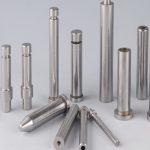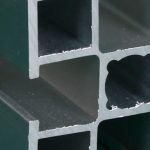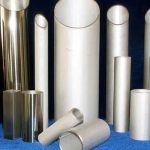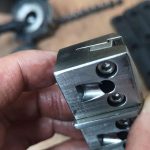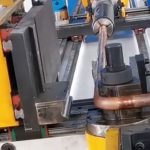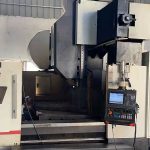Robotic gas-shielded metal arc welding (GMAW) welding guns and wearing parts are an important part of the welding operation, but they are often overlooked when investing in robotic welding systems. In fact, buying high-quality GMAW robot automatic spray guns and consumables can save significant costs in the long run, so companies usually choose the cheapest price. There are many other common misunderstandings about robotic GMAW guns and wearing parts. Correcting these misunderstandings will help increase productivity and reduce the downtime of the entire welding operation.
Here are five common misunderstandings about GMAW welding torches and wearing parts that may affect your robotic welding operations.
Misunderstanding 1: Ampere requirements are irrelevant
GMAW robot automatic spray guns are rated based on amperage and duty cycle. Duty cycle refers to the arc starting time that the spray gun can run at full load within 10 minutes. Many GMAW automatic spray guns on the market that use mixed gases have a rated duty cycle of 60% or 100%.
Welding operations using GMAW robot automatic welding torches and wearing parts usually exceed the amperage and duty cycle ratings of the welding torch. If the GMAW robot automatic spray gun is continuously used above its amperage and duty cycle rating, it may become overheated, damaged or completely fail, resulting in a decrease in productivity and an increase in the cost of replacing the overheated spray gun.
If this happens regularly, please consider upgrading to a higher-level spray gun to avoid these problems.
Misunderstanding 2: The space requirements of each welding unit are the same
When implementing a robotic welding cell, it is important to measure and plan before purchasing a robotic GMAW gun or consumables. Not all automatic spray guns and consumables can be used with all robots or all welding cells.
Having the right robotic pistol is an important factor that can help reduce or eliminate the source of common problems in welding cells. The spray gun must have a proper passage and be able to operate around the fixture in the welding unit so that the robotic arm can access all welds. If possible, the ideal situation is to use a cable for welding at one location. If not, you can use different neck sizes, lengths and angles, and different consumables or mounting arms to improve welding.
The automatic GMAW gun cable is also an important consideration. Incorrect cable length can cause it to get stuck on the tool, if the cable is too long, move incorrectly, or if the cable is too short, it will get stuck. Once the hardware is installed and the system is set up, make sure to test during the welding sequence.
Finally, the choice of welding nozzle can greatly hinder or improve the accessibility of welding in the robot cell. If the standard nozzle does not provide the necessary channels, consider changing it. The nozzles have different diameters, lengths and tapers to improve the joints, keep the protective gas covered and reduce the accumulation of splashes. Working with an integrator allows you to plan everything you need for welding. In addition to helping identify the above, they can also help ensure that the robot’s range, size and weight (and material flow) are appropriate.
Misunderstanding 3: There is no need to install the liner very laboriously
Correct liner installation is essential for high-quality welding and overall GMAW robot gun performance. The lining must be trimmed to the correct length to get the welding wire from the wire feeder to the contact and weld.
If the liner is cut too short, a gap will be formed between the end of the liner and the gas diffuser/contact tip, which may cause problems such as unstable wire feed or debris in the liner. When the bushing is too long, it will be bundled inside the cable, causing the wire to encounter greater resistance until it touches the tip. These issues can lead to increased downtime for maintenance and repairs, thereby affecting overall productivity. Arc instability caused by improper liner installation can also affect quality, which can lead to rework, more downtime and unnecessary costs.
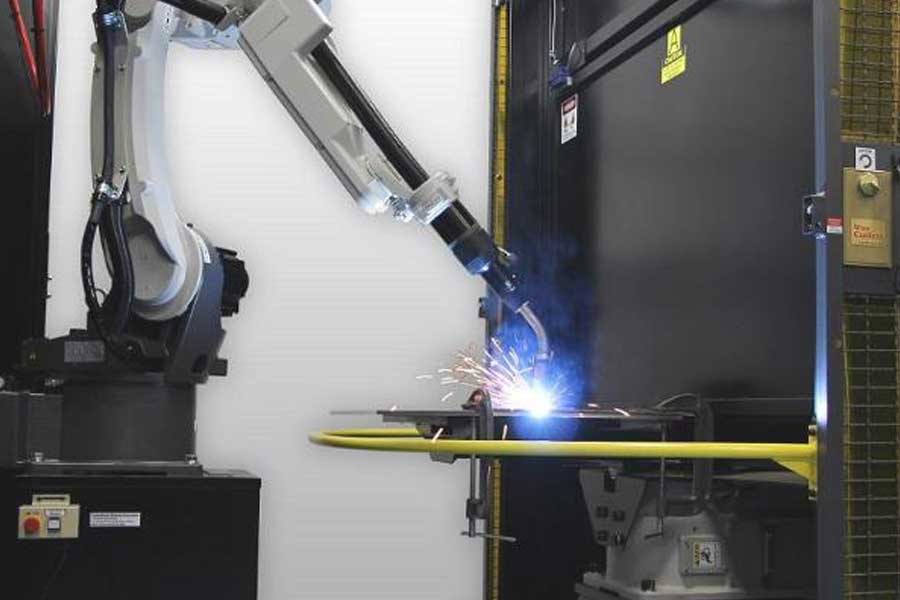
Misunderstanding 4: The style, material and durability of the contact tip are irrelevant
Not all contact prompts are the same, so it’s important to choose the right type for your specific application. The size and durability of the contacts depend on the amperage required and the arc on time. Compared to lighter applications, applications with higher amperage and arcing times may require heavier contact tips. Although the price of these products may be slightly higher than the price of inferior products, the long-term value should offset the previous price.
Another common misconception about solder contacts is that you need to replace them before they can be used for a lifetime. Although it may be convenient to replace it during the planned downtime, letting the contacts take full advantage of their service life before replacement can save costs by saving products. You should consider tracking their usage of contact tips, watch for excessive switching and resolve accordingly. This will help minimize downtime, which can reduce unnecessary inventory costs.
Misunderstanding 5: Water-cooled guns are difficult to maintain
In North America, the air-cooled robot GMAW spray gun is often used for high amperage and high duty cycle operations, but the water-cooled GMAW spray gun may be more suitable for your application. If you are welding for a long time and the air-cooled spray gun burns out, you may want to consider switching to a water-cooled system.
The air-cooled GMAW machine gun uses air, arc discharge time and shielding gas to eliminate accumulated heat, and uses a thicker copper cable than a water-cooled gun. This helps prevent the resistor from generating excessive heat.
The water-cooled GMAW spray gun circulates the coolant from the radiator unit through the cooling hose. The coolant then returns to the radiator, releasing heat in the radiator. Air and shielding gas further remove heat from the welding arc. Compared with the air-cooled system, the copper used in the power cable of the water-cooled system is very small, because the coolant will take away the thermal resistance before it accumulates.
Robotic welding operations usually choose air-cooled rather than water-cooled welding guns because they are worried that doing so will lead to more maintenance and downtime. In fact, if the welder is properly trained, it is very easy to maintain the water cooling system. In addition, although water cooling systems may be more expensive, they may be a better investment in the long run.
Break the misunderstanding of GMAW
When investing in robotic welding systems, GMAW welding torches and consumables must be considered. The cheapest option may increase your costs, so be sure to research before buying. Correcting common misunderstandings about spray guns and consumables can help increase productivity and reduce downtime for welding operations.
Link to this article: Increase productivity and reduce downtime of welding operations
Reprint Statement: If there are no special instructions, all articles on this site are original. Please indicate the source for reprinting:https://www.cncmachiningptj.com/,thanks!
 Sheet metal, beryllium, carbon steel, magnesium, 3D printing, precision CNC machining services for heavy equipment, construction, agriculture and hydraulic industries. Suitable for plastics and rare alloys machining. It can turn parts up to 15.7 inches in diameter. Processes include swiss machining,broaching, turning, milling, boring and threading. It also provides metal polishing, painting, surface grinding and shaft straightening services. The production range is up to 50,000 pieces. Suitable for screw, coupling, bearing, pump, gearbox housing, drum dryer and rotary feed valve applications.PTJ will strategize with you to provide the most cost-effective services to help you reach your target,Welcome to Contact us ( [email protected] ) directly for your new project.
Sheet metal, beryllium, carbon steel, magnesium, 3D printing, precision CNC machining services for heavy equipment, construction, agriculture and hydraulic industries. Suitable for plastics and rare alloys machining. It can turn parts up to 15.7 inches in diameter. Processes include swiss machining,broaching, turning, milling, boring and threading. It also provides metal polishing, painting, surface grinding and shaft straightening services. The production range is up to 50,000 pieces. Suitable for screw, coupling, bearing, pump, gearbox housing, drum dryer and rotary feed valve applications.PTJ will strategize with you to provide the most cost-effective services to help you reach your target,Welcome to Contact us ( [email protected] ) directly for your new project.
Link to this article:Increase productivity and reduce downtime of welding operations
Reprint Statement: If there are no special instructions, all articles on this site are original. Please indicate the source for reprinting:Alloy Wiki,thanks!^^


